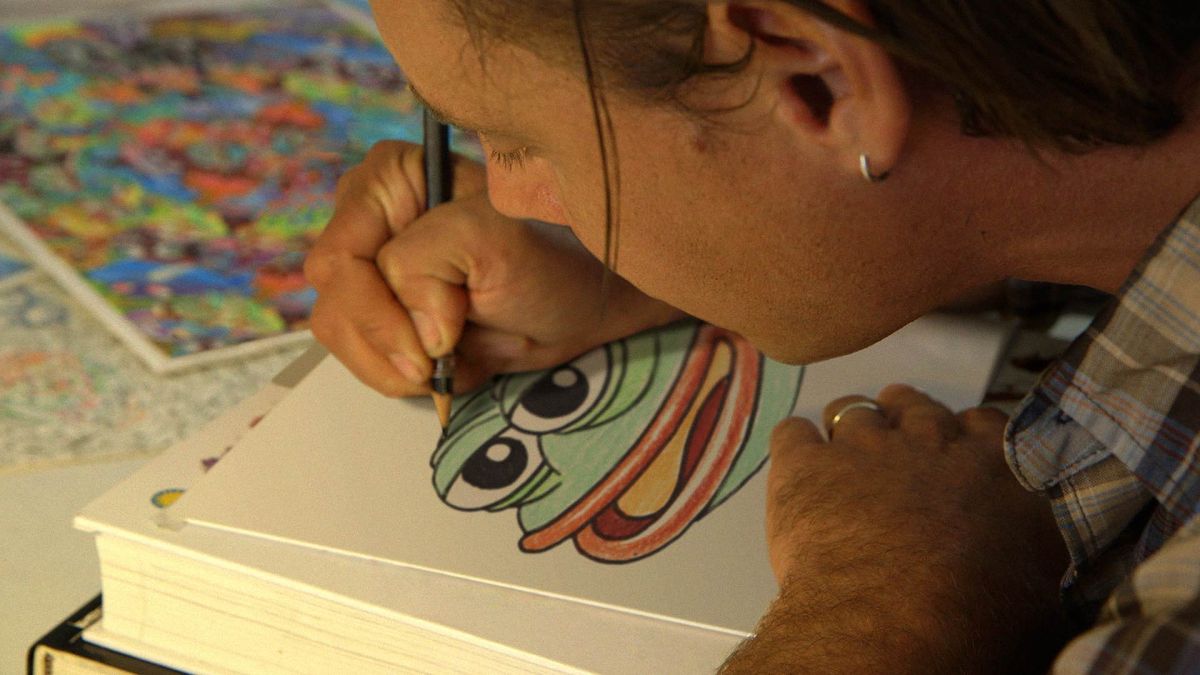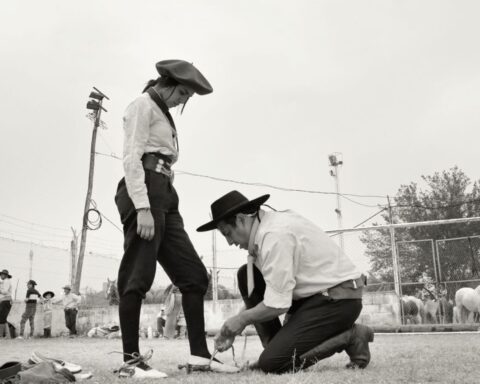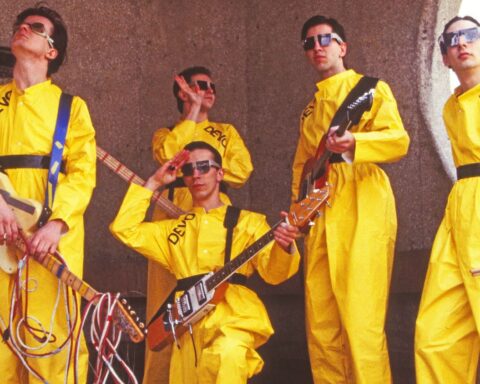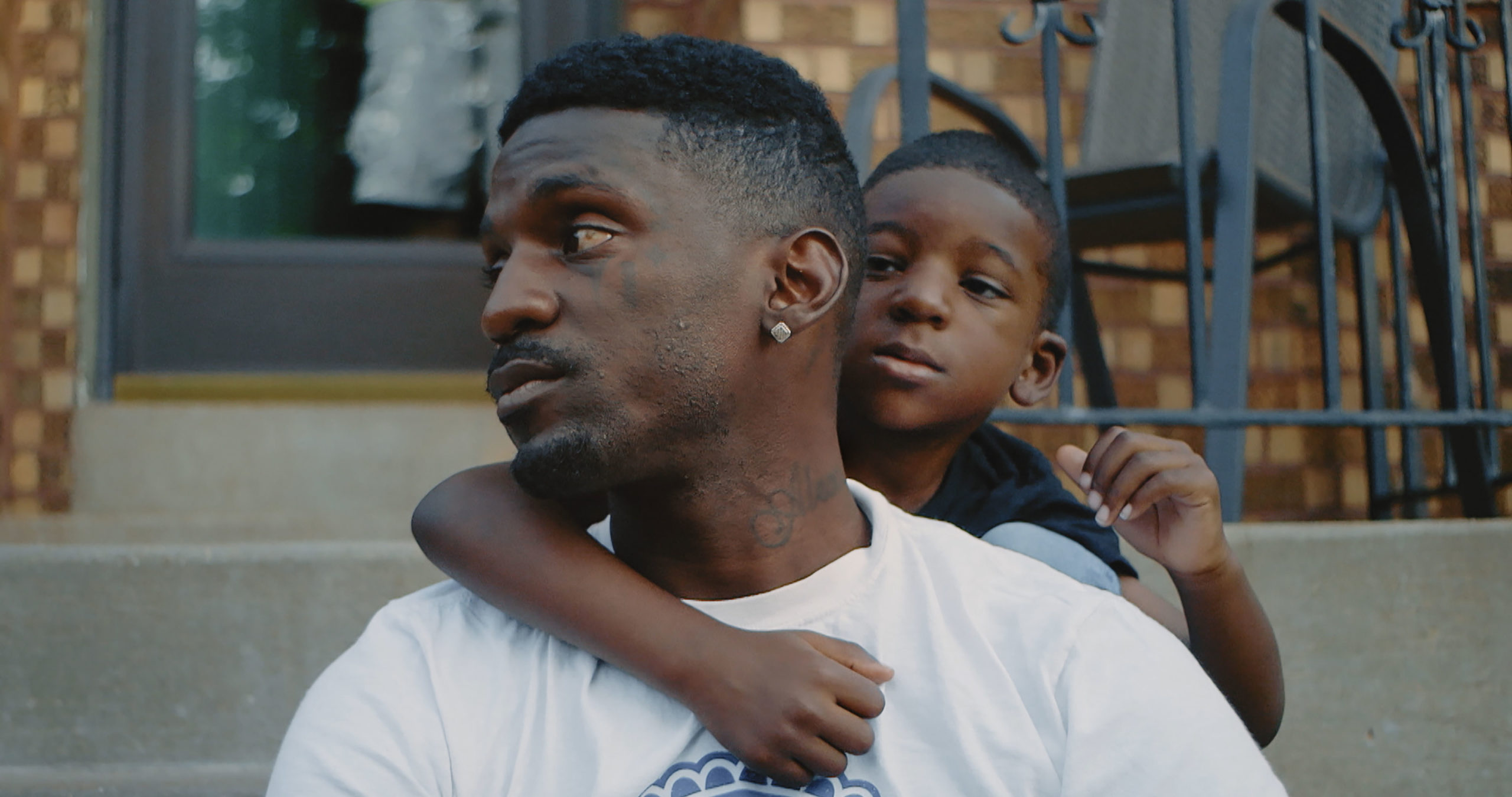Sundance, the internationally celebrated film festival that has taken place in Utah since 1978, is at an existential crossroads. As studios consolidate, streaming services disrupt distribution and consumption patterns, and audiences shift their expectations and viewing habits, this iconic home of independent American cinema is at a point of transformation. While the fiction front sees much consternation from critics and audiences about whether Sundance will continue to deliver some of the most talked about films of the year, the festival remains an unparalleled launching ground for exceptional non-fiction films. Frankly put, the dramatic films ensure that Park City offers some celebrity sightings and a few gems to celebrate. For documentary fans, however, Sundance remains the greatest collection of premieres on the festival calendar.
This year’s slate is as diverse as always with topics ranging from pop stars to politics, highlighting both truffle hunters and dive bar patrons in stories from around the world. Some Sundance docs adhere closely to the conventions of direct cinema, some are more traditionally journalistic, and others take non-fiction filmmaking in new and challenging directions. The festival provides an exceptional selection of both masters and newcomers alike. It offers a definitive starting point for discussions about documentary for the year to come, as noted by the stream of award season contenders that sustained the acclaim they built at Sundance 2019. Over the course of the festival, we will be highlighting many of these films. Some will be on streaming services within days of launching here, while others will continue on the festival circuit, appearing at Hot Docs and many other festivals in the months to come.
Feels Good Man
(dir. Arthur Jones; US Documentary Competition)
Arthur Jones makes a blistering debut with this look at the man behind a meme. Matt Furie created Pepe the Frog as part of the slacker indie comic called Boy’s Club only to find his chill, cold-blooded creature morphed into a sensation in dank corners of the internet like 4chan. Eventually, this image of an affable amphibian became intertwined with the alt-right movement. He made cameos in presidential tweets and eventually landed on a list of hate symbols published by the Anti-Defamation League.
Jones’ colourful film mixes animation, compelling interviews, and some bewildering tangents that provide a unique glimpse into a fundamental icon of the internet age. Feels Good Man is one of those wonderful non-fiction works that one approaches assuming that the story has already been told, only to find more depth and insight as the layers are peeled away. At times heartbreaking, at times uplifting, it’s a profound look into a subject that by its very nature feels ephemeral. Shown in this light, Pepe proves to be a touchstone representation about what’s heartwarming, and what’s truly heart wrenching, in our interconnected global culture. [JG]
The Mole Agent
(dir. Maite Alberdi; World Cinema Competition)
There’s something both cinematic and suspicious about the non-fiction credentials of Maite Alberdi’s The Mole Agent. The film opens with a kind of casting call for tech-savvy octogenarians to infiltrate a retirement home. Whether The Mole Agent provides a journalistically true insight into the situation, or is completely staged, or is, perhaps, a combination of both, may be beside the point. For whatever label one wishes to apply, the film is an engaging and warm look at a colony of lonely women, caring nurses, and a particularly charismatic lead character.
Sergio, the “mole”, is given the task of uncovering for his fixer any malfeasance by the staff. He instead uncovers a bunch of residents who mostly want to have their stories heard and their time shared with friendly companionship. The documentary crew plays an overt role, capturing moments that run from the droll to the truly moving. There’s a general haplessness about the mission, yet there is also a sense that Sergio is unlocking both passion and deep humanity from the people with whom he interacts. Alberdi’s film is truly playful, occasionally riffing on James Bond-like subterfuge, but in the end the schtick doesn’t get in the way of the impact of the emotions at play. The result is a unique and captivating look at aging, loneliness, friendship and kindness. [JG]
The Painter and the Thief
(dir. Benjamin Ree; US Documentary Competition)
Benjamin Ree’s film looks into a unique friendship that feels almost too crazy to be true. Barbora Kysilkova is a Czech national who makes her home in Oslo, Norway, while painting dark, photorealistic images that speak to her inner turmoil. We learn that two of her paintings were stolen from a local gallery but, thanks to video footage that provides an eerie intro to the film, the culprits were soon apprehended. During the trial she approaches one of the purloiners, asking a tattooed, fierce looking heroin user Karl-Bertil Nordland whether she can paint his portrait.
Thus begins this remarkable story, fusing a connection between artist and the robber of her art in ways that are often shocking. Through deft editing, certain key details are told from two perspectives, allowing us to more fully engage with one character at a time. The clear connection between painter and muse is perhaps the most obvious tack taken early on, yet as the storyline proceeds, these elements become more complex. Eschewing any sentimentality or sense of judgement, the documentary deftly bridges the characters’ various motivations. The result is a warm, moving, and often astonishing look at these two remarkable yet deeply flawed individuals. [JG]
The Fight
(dir. Elyse Steinberg, Josh Kriegman, Eli Despres; US Documentary Competition)
This timely look at the work of the ACLU (American Civil Liberties Union) provides a unique opportunity to see what makes this storied group of lawyers so impactful on the U.S.A.‘s political and legal landscape. Directors Elyse Steinberg, Josh Kriegman and Eli Despres give the staunch defenders of civil rights their due in The Fight. For decades, the organisation has helped steer the conversation towards upholding constitutional freedoms. What’s most fascinating is the apparently contradictory nature of ACLU cases, with lawyers simultaneously advocating for gay marriage or access to abortion while suing for the rights of fringe hate groups that protest overtly against these very same issues. Structured around four central cases—the ban on transgendered people in the military, abortion rights for immigrants in federal care, the policy of family separation at the border, and the so-called “Muslim ban”—the film helps us witness a flurry of hardworking legal minds advocating on behalf of their clients and their society as a whole.
The Fight is at its best when we see beyond the prevailing professional image of these crusaders. It lets the audience watch a brilliant legal mind haplessly trying to charge his phone, stymied by USB cable insertion, to the real costs on family life that have to be navigated when greater causes overwhelm personal ones. While the central focus is on the wave of lawsuits that have emerged under Trump’s presidency, the film is at its most moving when it’s the farthest from being partisan.
It is only by understanding the ACLU’s consistency, which is based on the Constitution’s fundamental rights of liberty and expression, that one can understand the opportunities and pitfalls that the organisation regularly encounters. A look at Second Amendment cases, as well as those based on the first, might have been too convoluted for the film’s storyline, but would have emphasized the complexity of their mission. It would be fascinating to see even more about how the organisation wrestles with these dialectical elements Despite a wish for a deeper dive into these seemingly antithetical positions, The Fight is a powerful, necessary, and illuminating look at the ACLU as it tries to navigate the age of Trump’s presidency, combatting as best it can the increasingly ferocious attacks on America’s fundamental rights in a battle that feels as urgent as ever. [JG]














